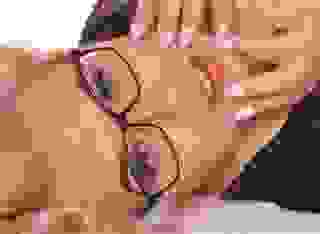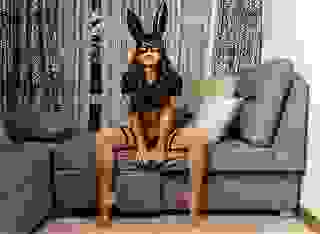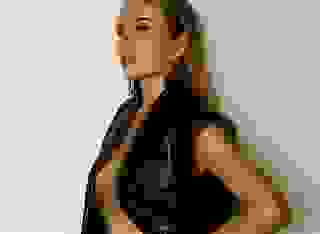Note: You can change font size, font face, and turn on dark mode by clicking the "A" icon tab in the Story Info Box.
You can temporarily switch back to a Classic Literotica® experience during our ongoing public Beta testing. Please consider leaving feedback on issues you experience or suggest improvements.
Click here"Mind you review the journal's specifications for the figures. I once had an article rejected because the figures were not properly scaled."
He nodded. "Done, sir."
"Can you stop at my office one day this week so we can review what you have so far? Say, Wednesday afternoon after I'm done teaching?"
"Yes, sir."
At the conclusion of dinner, Anders proffered a forthright thank you. Mullenix had long since dismissed any protestations on his part of someday repaying him. A hansom cab hailed by the doorman transported them from the restaurant westward past the brilliant spectacle of electrical advertising signs around Broadway, eventually transitioning from the smooth asphalt of the major thoroughfares to the rumbling cobblestones in the neighborhood north of Hell's Kitchen where Anders' boardinghouse was situated.
As he stepped out of the carriage, a pair of weary-looking nymphs of the night conversing on the sidewalk roused themselves, turning in his direction, but upon recognizing him, they rolled their eyes and resumed their conversation. Many previously politely declined offers had taught them no business was forthcoming from the serious young student doctor.
Frowning from his seat inside the cab, Mullenix glanced about the street. "You really should consider finding lodging in a more reputable neighborhood."
Anders surveyed the row of tired buildings and uneven sidewalks dimly illuminated by gaslights. A few doors down, a group of juvenile males were horsing about in the street with intermittent hoots of laughter. The sound of a phonograph emanated from a nearby tavern, outside of which were gathered several men in working-class garb, laughing and jostling each other. Scattered people sat on stoops smoking. He knew well that there were far more decrepit and dangerous neighborhoods. This was close enough to campus and importantly was commensurate with his present financial resources.
He shrugged. "It suffices, sir."
Wryly shaking his head, Mullenix signaled the cabbie with a tap-tap of his walking stick on the carriage roof and took his leave.
The front door of the boardinghouse squeaked as Anders entered. At this late hour, the house was quiet save for the muted clank of pots and pans being washed in the kitchen at the end of the hall. With irony, he compared the present setting to the restaurant he had recently left. The landlady Mrs. Sullivan kept a clean and respectable house, but the decor tended to the shabby with bare wooden floors, faded wallpaper, and plain gaslight fixtures on the walls.
As he passed the small front parlour, he exchanged nods with a fellow lodger, Mr. Gallagher, who was seated on the threadbare sofa reading a newspaper.
The dozen boarders were comprised by people employed at various modest positions in nearby neighborhoods. Mr. Gallagher was a dockmaster at the ferry terminal, and the other male inhabitants included an orderly at Roosevelt Hospital, an assistant zookeeper at the Central Park menagerie, a streetcar conductor, and two clerks. The five female boarders consisted of a pair of spinster sister schoolteachers, two nurses who worked at Sloane Maternity Hospital, and a solicitor's stenographer.
Ascending the creaking wooden stairs to the second floor, Anders discovered with appreciation two clean, stiffly starched shirt collars looped around his doorknob. God bless Mrs. Sullivan! Inside, the small room was tidy and spartan, containing a desk, a chest of drawers, a wash stand, and a narrow, iron-framed bed. Undressing, he folded his trousers, laid them on the desk, and placed a line of heavy textbooks along the front edge to refurbish the crease. The remainder of his clothing he hung in the tiny closet, returning the top hat to its cardboard box on the shelf.
Although his wardrobe had expanded since college, the garments were still few in number and entirely functional. In a row on the shelf next to the top hat box were a black bowler hat, a straw boater, and a wool cap. In addition to his tuxedo suit, he had two good suits, one for warm weather and one for cold. Moreover, he had availed himself of the numerous secondhand clothing shops to acquire less costly garments to wear without worry in the anatomy lab and morgue. Finally, for recreation, he had suitable attire for rowing and wheeling.
Before retiring, as was his habit, he charged himself with reviewing four facts he had studied earlier in the day. In anticipation of reporting to the psychoanalyst Dr. Schuller's clinic the next day, he considered the absence of hard facts in the specialty and allowed himself instead to review ideas. As he brushed his teeth, he inwardly recited Dr. Freud's four activities of dreamwork: condensation, displacement, representation, and secondary revision. He leaned over the porcelain water basin to rinse his mouth. Working through the definitions, his mind paused in perplexed contemplation of the larger concept of the unconscious.
Did he have an unconscious that was burdened with hidden memories and repressed desires? Raising his head, he studied his reflection in the small mirror above the washstand ... and beheld a young version of his father. Yes, he had his father's tall, wide-shouldered physique, blond hair, and blue eyes. But his full lips were certainly his mother's contribution.
His gaze shifted to a photograph of his parents propped in its little cardboard folder on top of the adjacent chest of drawers. The portrait had been taken shortly after their wedding, and they had undoubtedly dressed in their best attire. Their countenances were expressionless, but Anders saw in them his father's pragmatism and his mother's humor. In his childish recollection, the marriage had been a happy one.
He confronted his own eyes again. Unaccustomed to introspection, he was in unfamiliar territory. His mind had ever been occupied with concrete problems rather than metaphysical troubles --- studying scientific disciplines in college and medical school, engaged in varying employments since the age of twelve to earn money for school. If his dreams were a window to his unconscious, then his deepest concerns presumably were sex and being unprepared for an exam.
And as far as sexual desires went, Anders doubted he was suppressing anything. Private and circumspect, perhaps, but he had never felt ashamed of Nature's urges nor of any activities or encounters that had transpired in indulging them.
Was this the privilege of being a male? Or could it be a legacy of his culture of origin? Although he had lived in America since the age of nine, he still felt himself an outsider in the country. When he was old enough to appreciate it, he had been particularly struck by Americans' squeamish coyness in sexual matters, as evidenced by furtive, oblique conversations, stilted courting rituals, and sly innuendo in songs and advertising images. Females especially seemed to be severely constrained by society's expectations in regard to the subject. But perhaps this was not unique to America, judging by the epidemic of hysteria among Dr. Freud's female patients in Vienna.
Anders suspected that males in general were granted far more leeway than females in the pursuit of sexual activity. Was that why prostitution was apparently so widespread? Or even existed at all? Did not females have amorous urges like males? If moral crusaders like Anthony Comstock were to be believed, respectable women certainly did not. But, based upon his limited sexual experiences, it seemed equally plausible that respectable women were so shamed and repressed in their feelings that they shrank from sexual relations, thus compelling males to seek respite from purchased partners.
Growing up without sisters, and having a reserved nature, the few friends with whom he would even consider sharing such candid conversations were all male. Thus, he had insufficient data to test this hypothesis.
Through the window, the clatter of carriage wheels rose and receded on the street below. Anders felt a faint thread of uncertainty tugging at his mind. Despite his skepticism, if he were to lie on the chaise lounge and lapse into free association, would any surprises be forthcoming?
*****
He was born in the town of Ås, near the Norwegian capital of Christiania. His father, Erland Røkke, was a chemist at the Higher Agricultural College. His mother Ingarde taught at the village folkeskole.
Cherished in his memories of his mother were the bedtime stories she would tell him about the ancient gods. The thunder god Thor. The one-eyed King of the gods Odin, accompanied by his wolves and ravens. The goddess of love and practitioner of magic Freyja. The god of the sea and ships Njörðr. And the skiing huntress goddess Skaði. As he grew sleepy, she would conclude the story and kiss him good night, murmuring, "Jeg elsker deg, lille reinsdyr."
But Anders' favorite story was of how she and his father had met --- he liked how she would begin the tale, then his father would join in to complete the story together:
One winter when his father was at university, he and his school friends traveled to Innlandet County for a skiing excursion. Fate brought him to a resort in Trysil where he first set eyes upon the fair Ingarde, the innkeeper's daughter and member of a pioneering women's skiing club, Skaði, named for the goddess.
"He was shocked to see a girl skiing," his mother would tease.
"I was merely wondering how you endured all that snow up under your skirts," his father would say, not looking up from his book.
"And then when I beat him down the mountain, the expression on his face was priceless!" His mother would dissolve in laughter, and Anders would grin.
"I was speechless with love," his father would say, shrugging.
"But I was impressed with how he worked his ski pole." His mother and father would share a secretive smile.
His father would clear his throat. "And then we were married."
"And then you came along!" his mother concluded, hugging him.
At the time, the coy flirtation passed over Anders' naïve head, and he would pester them for details about the trail they had raced down --- how steep was it, were there many trees, how deep was the snow? As the family several times each winter traveled to the lodge in Trysil for weekends of skiing, skating, and sledding with his grandparents, he was in due time able to gratify his curiosity firsthand. His parents put him on skis at age three, and by age seven, he was able to make it down the mountain by himself.
With much excitement at age eight, Anders learned his long-standing wish was at last to come true: he was to have a little brother or sister! He prayed for a brother, and over the ensuing months imagined in impatient anticipation the games he would teach him. But Wyrd, that mysterious force of Fate, eventually revealed its incomprehensible, dissident plan for the Røkke family. Both his mother and the baby died in childbirth.
The subsequent weeks were but a blur in his memory. His father's sister, Aunt Sonje, came to stay with them --- he remembered that. He remembered too mimicking his father's silent stoicism outwardly, but nightly smothering his sobs into his pillow.
When, three months later, his father announced they were going to America to live, the news seemed entirely fitting, and indeed was an unexpected solace. Starting anew in America seemed the only rational course of action, and the necessary preparations distracted them from their despair.
Ever methodical, even in his grief, Anders' father spent the next several weeks making arrangements: exchanging letters with an acquaintance who had emigrated to America, writing an English summation of his education and employment, and at length communicating by letter and telegram with potential American employers.
In the spring of 1886, some six months after Ingarde's death, Anders and his father made their farewell in the cemetery --- his father laid a sprig of pink bleeding hearts upon her gravestone, while Anders placed there a pine cone with a tiny green beetle entombed in sap between the scales --- a treasure he had found on the mountain while skiing with his mother last winter.
The next object of his father's pragmatism was learning English as expeditiously as possible. Step one was the purchase of an English - Norwegian dictionary and a London newspaper. During the nearly three-week voyage --- on a ship from Christiania to the east coast of England, on a train to Liverpool, and from thence on the White Star Line steamship the Celtic to New York --- he and his father diligently studied English.
Anders never forgot his first glimpse of the wondrous skyline of New York City with its towering buildings and dazzling bridges. He stood next to his father at the ship's rail, his heart thumping as the ship advanced up New York Harbor amidst a chaotic array of smaller steam vessels, sailboats, and squawking seagulls.
They passed a small island on the port side, upon which a strange structure was under construction. It appeared to be a massive stone pedestal the size of a building, and atop its flat surface a scaffolding soared over 100 feet into the air. Even as he watched, dozens of men traveled into and out of the structure in pairs, carrying unrecognizable metal objects between them.
"What is that?" he asked his father.
His father consulted the map he was holding. "That must be Bedloe's Island, but I don't know what they're building."
Eleven years later, when Anders returned to the metropolis for medical school, he again beheld Bedloe's Island, and a lump formed in his throat at the sight of the Statue of Liberty.
*****
In his boardinghouse room, Anders collected his distracted thoughts, recalling the late hour. Tomorrow morning, he would be back at Dr. Schuller's clinic, continuing to observe the practice of the fledgling science of psychoanalysis. Setting his alarm clock, he lay back on the narrow, squeaking bed. Within minutes he was asleep.
Chapter 3. A MYSTERIOUS NEW PATIENT
F our years old --- five drops, ten years old --- ten drops . Anders recited to himself dosages of laudanum tincture as he carefully dragged a safety razor across his upper lip and jaw. The safety razor! By the accumulation of such small inventions had daily life unerringly improved, even since his father's youth. He remembered as a young boy watching in awe as his father shaved with a straight razor.
The exciting evidence of change was on display everywhere --- electricity, telephones, automobiles, cameras, phonographs, vitascope moving pictures, Ferris wheels, lifting bridges, sewage treatment, indoor plumbing (at least in some homes), and skyscrapers ... just to name a few.
Remarkable advances had been made in the field of medicine as well: Pasteur's germ theory of disease --- Lister's antisepsis techniques --- vaccines for anthrax, tetanus, diphtheria, and rabies --- x-rays --- anesthesia --- rubber gloves --- and a monthly-growing roster of surgical innovations, including successful removal of the appendix, gallbladder, thyroid, breast, ovary, fallopian tube, the replacement of diseased joints with ivory prostheses, and heart surgery (first performed five years ago by his hero, the Norwegian surgeon Axel Cappelen).
Anders was filled with optimism at the new century. Someday soon, he fervently hoped, no one need ever die in childbirth or from appendicitis.
His morning preparations adhered to an efficient routine. Shaving completed, he applied a scant amount of Macassar oil to a brush and smoothed back his hair, crouching slightly to see the top of his head in the mirror. The thick, blond strands darkened to a gold sheen with the application of oil, and the faint botanical fragrance reminded him of the spruce trees of his childhood homeland. Next, he threaded a tie through a starched white collar and affixed the assemblage to his shirt with a stud at the back.
A knock sounded on the hall door. "Dr. Røkke?" called a childish voice.
"Come in."
Ten-year-old Jimmy Sullivan, the landlady's son, swung open the door. "Dr. Røkke ---"
"Mr. Røkke," Anders corrected. "I'm not a doctor yet." He fastened the front corners of the collar to the shirt with another pair of studs and knotted the tie. "What is it, Jimmy?"
"Ma needs help in the kitchen."
Anders caught up his dangling braces and snapped them over his shoulders. He nodded towards the door. "Lead on."
"Are you cutting off legs today?" Jimmy asked as they descended the stairs.
"No."
"Are you cutting into someone's belly?"
Anders grinned. "No, this month I'm studying the mind."
"The mind?" The boy's eyes grew wide. "You're cutting into someone's brain?"
"Only metaphorically," he said with a laugh.
Jimmy looked confused. "Only meta --- what?"
"No cutting into brains, alas."
The smell of coffee and eggs met them in the kitchen. Mrs. Sullivan, a sturdy, auburn-haired woman, glanced around from the sizzling pan on the stove. "Oh, Dr. Røkke, thank you for coming in me hour of need. Would ye mind fetching down the bag of flour from the pantry shelf while I get your breakfast to the table? Sure, those rascally delivery boys played a prank on me, putting it up so high!"
Giving up on correcting the misuse of the title, he followed Jimmy into the adjacent pantry and, maneuvering past stacked bundles of old newspapers, hoisted down from the top shelf a 50-pound flour sack.
"I was going to climb up the stool and get it meself, but Ma said it was too dangerous," Jimmy said.
Anders placed the sack on the kitchen counter.
"Ah, thank you! You're a good lad, so ye are. And here's your breakfast as a reward." Moving aside a gossip newspaper on the table, Mrs. Sullivan set down a steaming mug and plate of food.
Within twenty minutes he had eaten and was on his bicycle, heading east in the cold autumn morning, a clean rag wrapped around his trouser leg to prevent it from snagging or being soiled by the chain. He wove among the chaotic, honking morning traffic in the streets south of Central Park --- carriages, streetcars, handcarts, and occasional automobiles. He swerved around innumerable pedestrians and piles of dung. What notably weren't present were other bicycles, as most wheelers confined their excursions to the designated paths in the park --- his passage thus provoked an occasional frowning headshake from a police officer.
Upon reaching Dr. Schuller's stately three-story mansion on Park Avenue, Anders secured his bicycle next to the stable in back and tidied his appearance. Inside the front hall, Schuller's housekeeper and nurse, Mrs. Lunsford, took his bowler hat.
"Good morning, Mr. Røkke," she said with a smile. She was a thin, brunette woman in her early forties, garbed with impeccable correctness in a simple black gown with a starched white collar.
"Good morning, Mrs. Lunsford."
"Ah, Mr. Røkke!" A deep, melodious voice with a trace of a Teutonic accent came from the elegant stairway. Dr. Schuller descended, tucking a gold watch into its pocket. "I trust you are well this morning."
Anders recalled Dr. Mullenix's comment about Schuller's aristocratic pedigree but could neither confirm nor deny the rumor based strictly on the man's appearance. A distinguished looking gentleman of about forty, Dr. Alfred Schuller was of average stature with light brown hair and handsomely groomed, mutton-chop sideburns.
"Yes, sir. Thank you."
Dr. Schuller led the way into the library that served as his consulting room. "We appear to have a busy schedule today, but I shall ensure that we have some time to discuss the patients." He stood at his desk, running a finger down a page in the appointment book. "Have you any questions about the cases or practice so far?"








